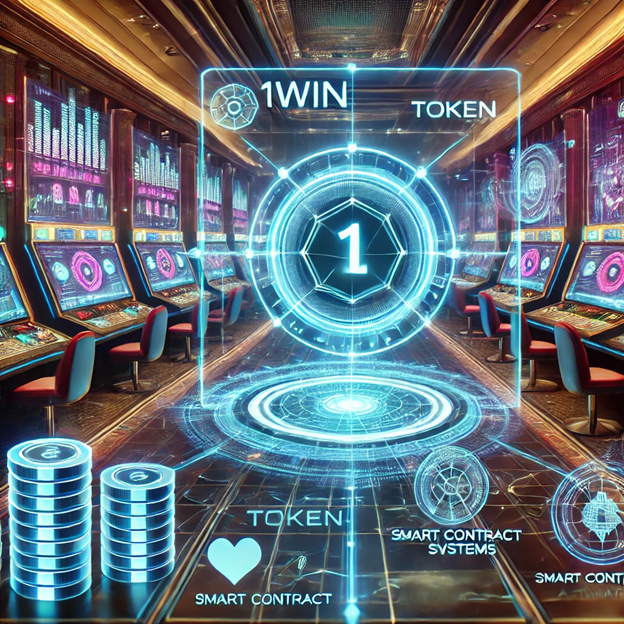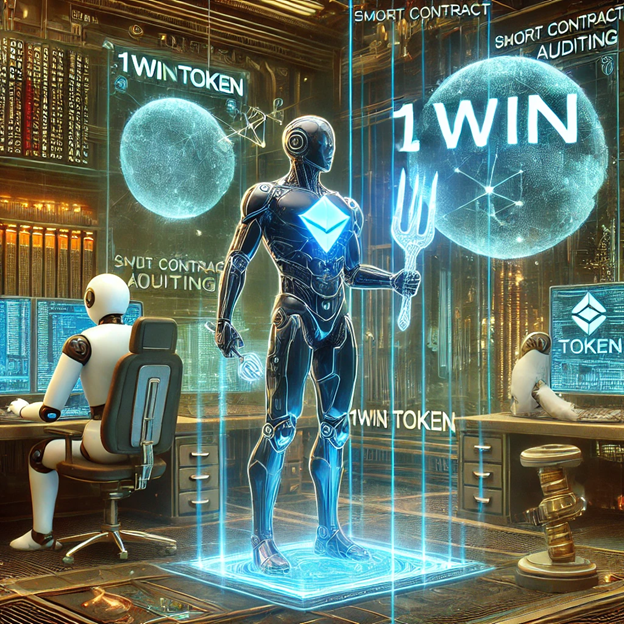Blockchain technology is transforming how users interact with online platforms, making engagement more rewarding and financially beneficial. One of the most innovative applications of this concept is 1win Clicker, a gamified earning model where users accumulate 1win Token simply by clicking. Unlike traditional loyalty programs, this system leverages blockchain-based incentives to encourage participation, creating an interactive and engaging experience. But how does this economy function, and why do users earn rewards just by clicking?
Beyond gamification, crypto betting regulation is becoming a crucial factor in shaping the future of digital wagering. As governments and financial institutions develop new policies, the legal landscape for tokens like 1win Token continues to evolve. Will increased regulation open doors for mass adoption, or will it impose restrictions on decentralized betting platforms? Understanding the potential regulatory changes is essential for predicting the token’s long-term impact on the industry.
As blockchain-powered betting and play-to-earn models gain traction, the balance between financial opportunity and regulatory oversight becomes more critical. Exploring the mechanics behind 1win Clicker and the future of 1win Token in a changing legal environment offers valuable insights into how decentralized gaming will develop in the years ahead.
How the 1win clicker economy works: why users earn by clicking
The 1win Clicker system represents a gamified earning model where users are rewarded for their activity. Unlike traditional betting or play-to-earn games that require financial investment or skill-based participation, 1win Clicker operates on a simple engagement-based economy, allowing users to accumulate 1win Token through clicking mechanics. But why does this model work, and what drives the economy behind it?
The table below breaks down how 1win Clicker functions and why users can generate earnings through continuous engagement:
| Feature | Traditional earning models | 1win clicker model | Impact on users |
| Earning mechanism | Requires deposits, bets, or purchases to earn rewards. | Users earn 1win Token simply by clicking and staying active on the platform. | Encourages non-financial engagement while allowing passive earnings. |
| Reward source | Funds come from deposits, wagers, or external advertisers. | A portion of the platform’s token economy is allocated to reward distribution. | Sustainable tokenomics incentivize user participation. |
| Decentralization | Controlled by centralized platforms with limited transparency. | 1win Clicker uses blockchain-backed transactions to distribute rewards fairly. | Transparent and verifiable earnings model. |
| User engagement | Players interact only when betting or making financial transactions. | Continuous engagement is rewarded, making participation more interactive. | Increases retention and user involvement. |
| Monetization strategy | Platforms earn primarily from deposit fees and house edge in games. | Increased platform activity boosts liquidity and token utility, benefiting the ecosystem. | Users contribute to the ecosystem’s growth while earning. |
| Scalability | Limited to high-value transactions or specific games. | Any user can participate and earn regardless of skill level or financial input. | Opens new earning opportunities for a wider audience. |
| Token utility | Most loyalty rewards are locked to a platform with limited usage. | Earned 1win Token can be used for betting, trading, or staking. | Provides real financial value beyond gaming. |
The 1win Clicker economy thrives because it incentivizes user engagement without requiring upfront investment, creating a self-sustaining model where active users contribute to platform growth. By distributing 1win Token as a reward, the system ensures continuous participation, enhancing the platform’s overall liquidity and utility.
As the play-to-earn and engagement-based models gain traction, platforms like 1win Clicker demonstrate how blockchain technology can transform user interaction into a financial opportunity. With transparent reward distribution, decentralized ownership, and scalable participation, this model paves the way for new forms of digital earning in iGaming and beyond.
Regulating crypto betting: what’s next for 1win Token?
As blockchain technology reshapes the online betting industry, regulatory frameworks are evolving to keep pace. 1win Token, as a decentralized digital asset, operates in a rapidly changing landscape where governments and financial institutions are defining the rules for crypto-based wagering. While regulations vary across jurisdictions, certain trends and challenges will shape the future of 1win Token and similar assets in the betting sector. Here’s what to expect:
- Increased compliance requirements – as crypto betting gains popularity, platforms using 1win Token may need to comply with Know Your Customer (KYC) and Anti-Money Laundering (AML) policies to operate legally.
- Regional legal variations – some countries are adopting crypto-friendly regulations, while others impose restrictions on blockchain-based betting, creating a fragmented global market.
- Licensing and regulatory oversight – to ensure legitimacy, betting platforms that support 1win Token may need to obtain gaming licenses from authorities that recognize blockchain transactions.
- Taxation policies on crypto winnings – governments may introduce taxation frameworks for digital betting winnings, requiring users to report and pay taxes on 1win Token earnings.
- Stablecoin integration for compliance – some regulatory bodies may push for stablecoin-based wagering, reducing concerns about volatility while still leveraging blockchain benefits.
- Decentralized betting challenges – fully decentralized platforms using 1win Token may face difficulties in meeting compliance standards, leading to potential restrictions in some regions.
- Security and fraud prevention measures – regulatory agencies may enforce smart contract audits and blockchain security protocols to prevent fraud and hacking risks.
- Cross-border crypto regulations – as betting platforms attract international users, cross-border rules will influence how 1win Token can be used in different jurisdictions.
- Adoption by regulated operators – traditional betting companies may explore 1win Token as a payment option if regulatory frameworks become more defined and widely accepted.
- The role of DeFi in betting – with decentralized finance (DeFi) gaining traction, 1win Token could be integrated into smart contract-based wagering, aligning with future regulatory models.
The future of 1win Token in the betting industry will depend on how regulators balance innovation with compliance. While some restrictions may emerge, growing acceptance of crypto-based financial models could solidify 1win Token’s role as a legitimate asset in online gaming. The next phase of regulatory developments will determine whether blockchain-powered betting becomes fully mainstream or remains a niche market in the evolving digital economy.
Final thoughts: the future of 1win Token in gaming and regulation
As blockchain technology continues to transform online betting, 1win Token is emerging as a key player in the evolution of iGaming. Its integration into gamified earning models like 1win Clicker demonstrates how digital assets can incentivize user engagement, creating a dynamic and self-sustaining economy. Unlike traditional reward systems, 1win Token offers real financial utility, allowing users to stake, trade, or reinvest their earnings within the ecosystem.
At the same time, the future of crypto betting regulation remains uncertain but promising. While some regions impose strict compliance measures, the broader trend suggests a gradual acceptance of blockchain-based wagering. Regulatory frameworks will play a crucial role in shaping the accessibility and legitimacy of 1win Token, determining whether it becomes a mainstream betting currency or remains within niche markets.
Despite regulatory challenges, the growing adoption of decentralized finance and smart contract-based betting indicates that 1win Token has the potential to become a standard in digital wagering. Whether through its role in engagement-based earnings, decentralized transactions, or regulated betting environments, it represents a new era of financial innovation in online gaming. As the landscape evolves, the intersection of blockchain technology, user rewards, and compliance will define the next chapter for 1win Token and the future of crypto betting.




